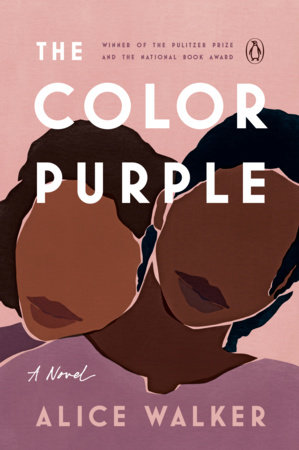Normally I hate a book that relies too heavily on dialogue for character development, but Walker manages to make Celie, Shug, Albert, and all the other characters feel like real people and not just an accent. Celie is warm, intelligent, flawed, and transformed by trauma in an authentic manner.
One of my favorite aspects of Walker's novel is the diary format and how it spans so much of Celie's life, hitting the important parts and cutting out anything that would make the story superfluous. And the way the second half entwines the lives of Celie and Nettie even though their experiences and maturation are so different.
This book hits on some heavy controversial issues. I find it fascinating to think of a relationship being formed between a lesbian and bisexual women, both of whom are married to men, and there being very little homophobia or outrage present. I loved how normalized their relationship became.
Another controversial topic was the point of religion and God. Walker allowed us to see the transformation of religious thinking that happened throughout not only Celie's life and experience, but also Nettie's as she experienced being a missionary. I loved how we saw them come to the conclusion that God was nature, love, and life instead of the white man portrayed from the pulpit through two completely different life experiences.
And of course the famous and wondrous quote:
"I think it pisses God off if you walk by the color purple and don't notice it."
I love this view of religion. I've identified as an atheist for quite awhile now but I think if I had been raised with this view of God, maybe I wouldn't have taken that label.
One way that Walker subtly shows who Celie is as a person, is in how Celie refuses to name men in writing when she's speaking for herself. She refuses to name her husband, Albert, and even makes a point of forgetting his name when Shug uses it. I love how Walker uses this tactic to allow Celie to have control and agency over her own life. By not naming her oppressor, she takes away his power. It isn't until Albert apologizes and stops trying to control her, that Celie calls him by his name and claims him as an equal. This subtle use of language conveys such a huge message about Celie and her will and character.
I understand why The Color Purple is one of the most reread books out there. Walker manages to do something most writers can't, write a book that's language is simple and unfettered by pretension but conveys a beautiful and powerful story.





